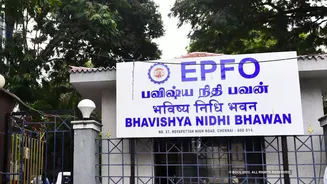Safety First Approach
The unveiling of a teen-friendly ChatGPT underlines OpenAI's commitment to user safety, which emerged due to rising concerns about the platform’s suitability
for younger audiences. The company recognized the need to create a digital space that is better suited for teenagers. To address this, OpenAI has tailored its existing AI model and developed new content filters. These filters are set to block inappropriate material more efficiently, reducing the chances of young users encountering harmful content. Furthermore, the team is introducing stricter guidelines that are designed to promote healthier online interactions, with the aim of preventing cyberbullying and other forms of online harm. This careful attention to safety reflects OpenAI’s proactive approach in safeguarding its users.
Adjusted Content Filters
The cornerstone of the teen-friendly ChatGPT is the refinement of content filtering. OpenAI has made significant improvements to how its AI model identifies and screens potentially dangerous material. The new filters are crafted to specifically target content that could be inappropriate or harmful to teenagers, including explicit or violent content. Moreover, these filters extend beyond merely blocking certain words or phrases. They now use a complex understanding of context and user behavior to identify and neutralize potentially harmful interactions. This multifaceted approach ensures that teens are protected from exposure to unsuitable content. The adjustments show OpenAI’s dedication to keeping the online environment safe.
Interaction Guidelines Enhanced
Besides content filtration, OpenAI has revised the interaction guidelines for its teen version of ChatGPT. These changes seek to foster a more positive and constructive experience for the younger audience. They incorporate more robust measures to prevent cyberbullying and encourage respectful discourse. The new guidelines clarify expected behavior within the platform, encouraging more empathetic and understanding interactions. OpenAI believes this will foster a safer and more welcoming atmosphere for teen users. By setting clear expectations and providing tools for reporting abuse, the company aims to cultivate a healthier online environment where teens can engage in meaningful and safe interactions. The updated guidelines clearly demonstrate a commitment to not only securing content, but also ensuring better online communication.
Future AI Development
The launch of teen-friendly ChatGPT could be an example for future AI development. OpenAI’s initiative acts as a case study for how AI companies can prioritize user safety. The lessons learned from this project can potentially inform the design of other AI platforms and applications in the future. Specifically, it offers valuable insights into how to tailor content filtering, develop interaction guidelines, and promote responsible usage across various platforms. The emphasis on user safety and creating a safer online experience is anticipated to influence industry practices and encourage other companies to also consider developing AI technologies that put safety and wellbeing at the forefront. This direction points to a broader cultural shift where the wellbeing of users takes precedence, and AI is developed responsibly.












